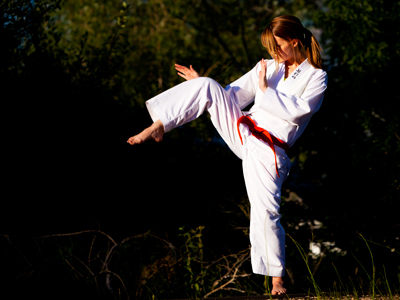
Biology - Exercise and Health (AQA)
Students of GCSE Science will look at the requirements of staying healthy. This is the second of six quizzes on that topic and it looks in particular at the effect that exercise has on our health.
Eating a balanced diet is an important factor in staying healthy, but so is exercise which has a positive effect on our health in many ways. During exercise your body's metabolic rate increases which means you burn more calories. Exercise also builds muscle mass. The metabolic rate of muscle cells is greater than that of other cells even at rest. Exercise therefore helps your body to control its weight more easily.
Exercise increases your heart and breathing rate which improves your circulation. The capacity of your blood to carry oxygen and get rid of waste from your cells is also improved. Being active boosts high-density lipoprotein (HDL), or "good," cholesterol and decreases the levels of unhealthy triglycerides. This double effect helps to reduce the clogging of your arteries and keeps your blood flowing smoothly, reducing your risk of heart disease, diabetes and strokes.
Returning blood to the heart from lower parts of the body (such as the feet and legs) is hard work for your circulatory system since this blood has to be pushed upwards against the force of gravity. Exercise gives your circulatory system some help from muscles that surround veins. When you walk or run, muscles in your feet and legs help squeeze the veins, pumping blood upwards. Improving your circulation helps your hands and feet keep warmer in winter.
Regular exercise also makes you stronger and fitter so you will be less tired during the day. Muscles become more toned and, over time, exercise becomes easier. Many vigorous activities help you build strong bones too, such as sports like gymnastics, martial arts and football which involve running and jumping. Exercise doesn't need to be vigorous all of the time! Moderate exercise, like going for a walk or gentle cycling, is also beneficial - and remember to include resistance exercise like push-ups, pull-ups, squats and lunges.
And for the days when you are feeling a bit down in the dumps - do some exercise! It stimulates the release of certain chemicals in the brain that are associated with relaxation and happiness. Exercise improves not only our health, but also our mood!
Ready for more?
not all...
quizzers. Try to win a coveted spot on our Hall of Fame Page.







